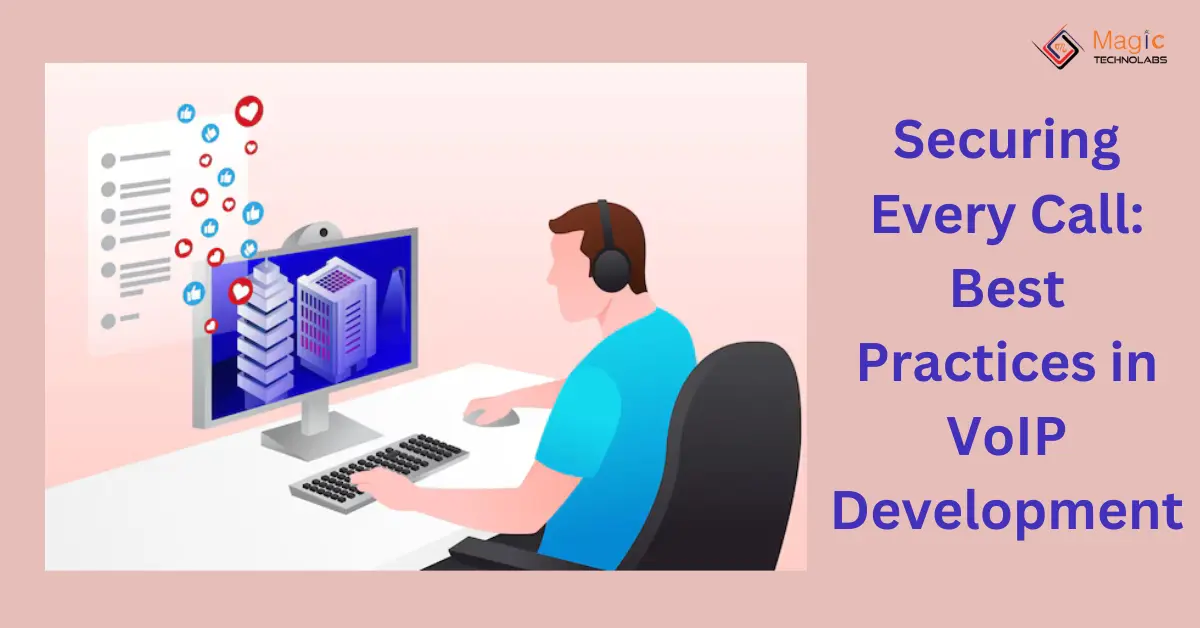In today's digital age, Voice over Internet Protocol (VoIP) has become a cornerstone of business communication. It offers cost-effective, feature-rich calling solutions for businesses of all sizes. However, with this convenience comes a crucial responsibility: ensuring the security of every call. Data breaches and eavesdropping attempts can have severe consequences, compromising user privacy and damaging business reputation.
This is where secure VoIP development comes into play. By implementing best practices throughout the development process, VoIP providers can build robust systems that safeguard user data and calls. Here are some key areas to focus on:
Encryption is King: Encryption scrambles data into an unreadable format, rendering it useless to anyone who intercepts it. VoIP development should prioritize robust encryption protocols like Secure Real-Time Transport Protocol (SRTP) for media streams and Transport Layer Security (TLS) for signaling data.
Authentication Matters: Verifying user identities is vital for preventing unauthorized access. Secure VoIP systems should employ strong authentication techniques like multi-factor authentication, which adds an extra layer of security beyond usernames and passwords.
Network Security is Paramount: The network infrastructure that carries VoIP traffic needs robust security measures. Firewalls and intrusion detection systems can help identify and block suspicious activity, while network segmentation can limit the impact of a potential breach.
Vulnerability Management is Key: No software is perfect, and vulnerabilities can emerge over time. Secure VoIP development involves continuous monitoring for vulnerabilities and the prompt implementation of security patches to address them.
User Education is Crucial: Even the most secure systems can be compromised by user negligence. Educating users about strong password practices, identifying phishing attempts, and reporting suspicious activity is essential for maintaining an overall secure environment.
Building Trust Through Security:
By prioritizing these best practices, VoIP developers can build systems that users can trust. Robust encryption, secure authentication, and vigilant network security create a strong foundation for safeguarding sensitive data and fostering a secure communication environment. Additionally, transparent communication with users regarding security measures goes a long way in building trust.
Security: An Ongoing Journey
Security is not a one-time fix; it's an ongoing process. VoIP developers must continuously evaluate evolving threats and adapt their strategies accordingly. By staying informed about the latest security trends and implementing cutting-edge solutions, VoIP providers can ensure that every call their system carries remains secure and confidential. Remember, secure VoIP development is not just an option, it's a necessity in today's digital landscape.
















